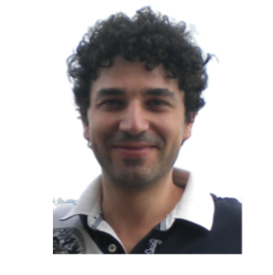Keynote Speaker
ICEER 2023

Angelo Algieri
University of Calabria, Italy
Speech Title: Efficiency And Renewable Energy for A Sustainable Future
Abstract:
Nowadays, climate change, geopolitical crises, and energy security represent shared concerns for governments, policymakers, responsible investors, and the research community. For this purpose, several initiatives and packages have been proposed in the last few years to mitigate the dependence on fossil fuels, global warming, and the continuous fluctuations of energy prices. Among the others, the European Green Deal aims to transform Europe into the first climate-neutral continent by 2050, with a decrease in the net greenhouse gas (GHG) emissions by 2030, compared to 1990’ values, higher than 55%. The Fit to 55 package defines a set of proposals to update EU directives and rules towards new challenging climate targets. The REPower EU Plan introduces several actions to improve the affordability, security, and sustainability of the energy sector in Europe.
In this framework, the efficient exploitation of renewable sources and the development of innovative energy systems represent the cornerstones to promote a faster and softer transition from fossil fuels and traditional technologies towards cleaner and more sustainable energy solutions. Fossil fuels, in fact, still represent the principal energy source worldwide, despite the global issues on climate change and GHG emissions, affordability, and security. Conversely, renewable sources provide more sustainable and low-carbon emission alternatives, exploiting local resources.
Furthermore, the development of innovative integrated energy systems and the combined generation offer multiple benefits owing to the energy efficiency improvement and the decrease in the primary energy supply and related costs. Polygeneration provides, in fact, the simultaneous generation of different energy outcomes (i.e., electricity, heating, cooling, steam, hydrogen, etc.) in a single integrated process. It represents a remarkable alternative to separate traditional energy production able to assure a noticeable increase in global energy efficiency and primary sources saving, especially if combined with renewables.
The lecture aims to stimulate a discussion on the role of renewable energies and efficiency increase for a greener and more sustainable future.
Biography
Angelo Algieri is Professor of Energy Systems and Power Generation at the Department of Mechanical, Energy and Management Engineering of the University of Calabria (Italy). He received the (5-year) degree in Mechanical Engineering with laude at the University of Calabria (Italy), the post-degree diploma in Metallurgy at the University of Modena e Reggio Emilia (Italy), and the Ph.D. degree in Mechanical Engineering at the Politecnico di Bari (Italy). He was at the von Karman Institute for Fluid Dynamics (Belgium), where he obtained the post-degree diploma in Fluid Dynamics with honours. Following two post-doctoral years of research, he was Assistant Professor at the Mechanics Department of the University of Calabria.
